Menu

THE BLACKSMITH
SHIGEKI TANAKA
- Choosing a selection results in a full page refresh.









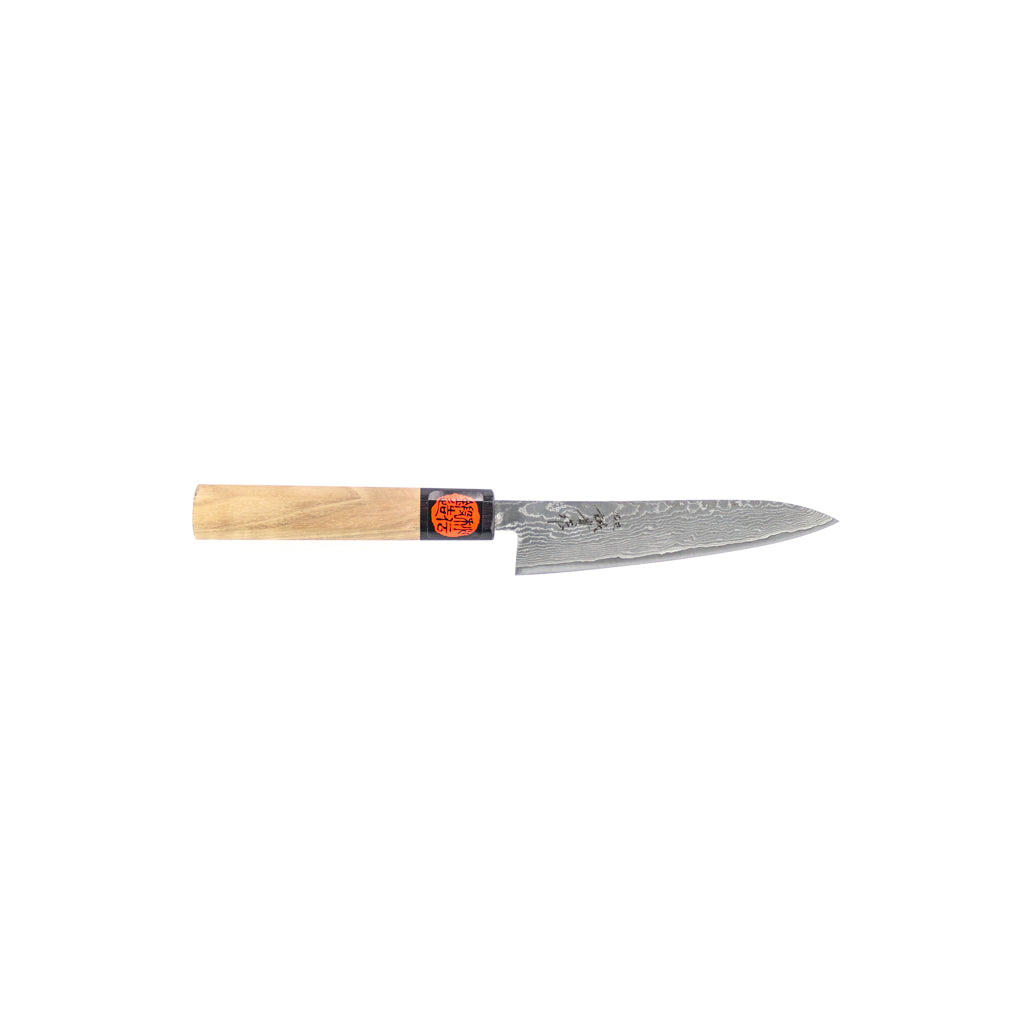
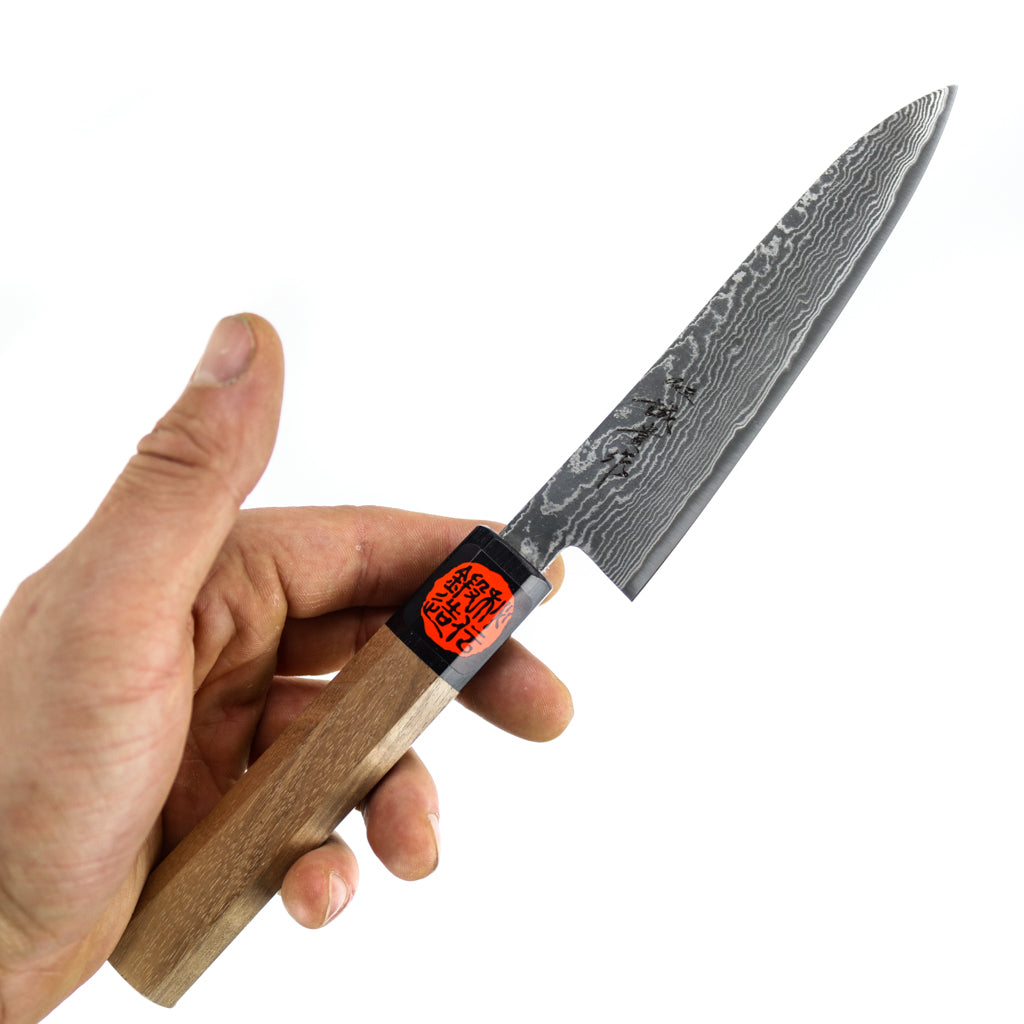







Usually ready in 1 hour
| Blade Length | 135 mm |
| Total Length | 260 mm |
| Steel | R2 Stainless |
| Handle | Walnut |
| Ferrule | Black Pakka Wood |
| Rockwell | 64 |
| Height Spine to heel | 31 mm |
| Width at Spine | 1.9 mm |
| Weight | 75 grams |
Shigeki Tanaka started his blacksmith journey when he apprenticed in the Takefu knife village near Echizen city for three years. A region renowned for it's cutlery making and forging techniques he learned the intricacies of hand forging blades used for food production there. He later moved back to Miki City to continue his work at his Family's shop where they primarily made sickles and other agricultural tools. Now the shop focuses on Kitchen knives and has gained a reputation worldwide for producing some of the best knives available. This particular line of knives is made from SG2 (R2) powdered stainless steel and features a beautiful Damascus pattern. They have gorgeous walnut handles with pakka wood ferrules with impeccable fit and finish and outstanding edge retention and overall performance. These knives are a functional piece of art and would make a great addition to any collection.
This petty has a great feel in hand and is light and nimble while still having good stiffness and strength. The thin tang and added depth to the blade make this a great petty for small on the board tasks like shallots, garlic, and chives, but it wont get in the way when its time to break down a chicken or debone that pork shoulder. A great knife for home cooks to pair with a larger knife like a gyuto or santoku, and great for the professional for intricate prep or to leave on your station during service when you don't have room or time to set up a larger cutting board and pull out a larger knife from your roll.
Knife Care (Stainless Steel)
Follow these care recommendations for your Japanese knives to protect the edge and keep them sharp as long as possible:
All products are shipped within 24 hours. We offer same day shipping for products ordered by 12pm. Please allow 4-7 business days for your shipment to arrive with standard shipping. Expedited shipping options are also available at checkout.
We offer free shipping on orders within Canada over $150 CAD and free shipping on orders to the US over $200 USD.
Curbside pick-up is available at both our Hamilton and Etobicoke locations.
To make sure our customers are always satisfied, we offer full refunds on products for 14 days after receiving them. See our full return policy for details.
More questions? Check out our shipping policy, our return policy, or reach out to us directly.
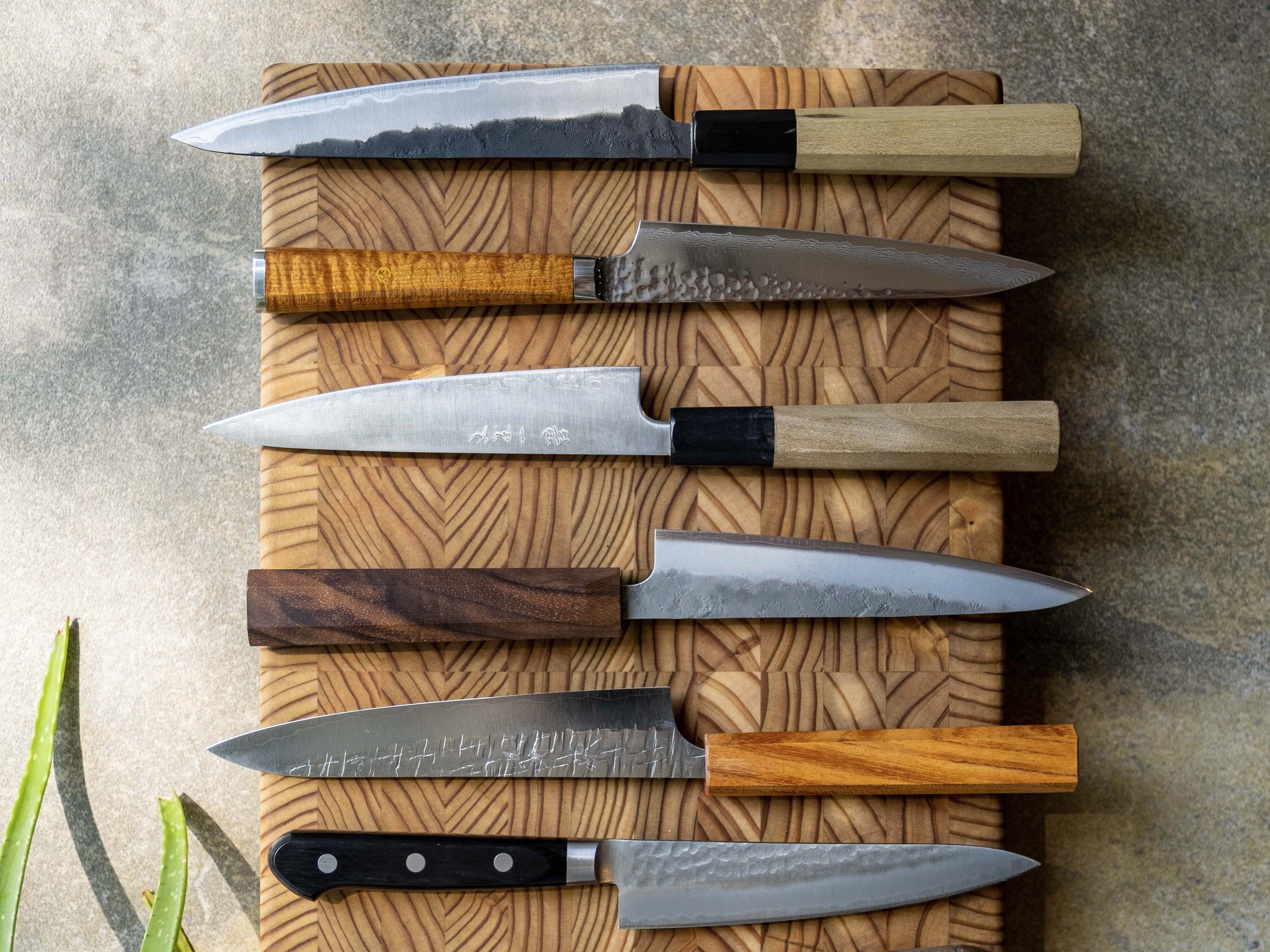
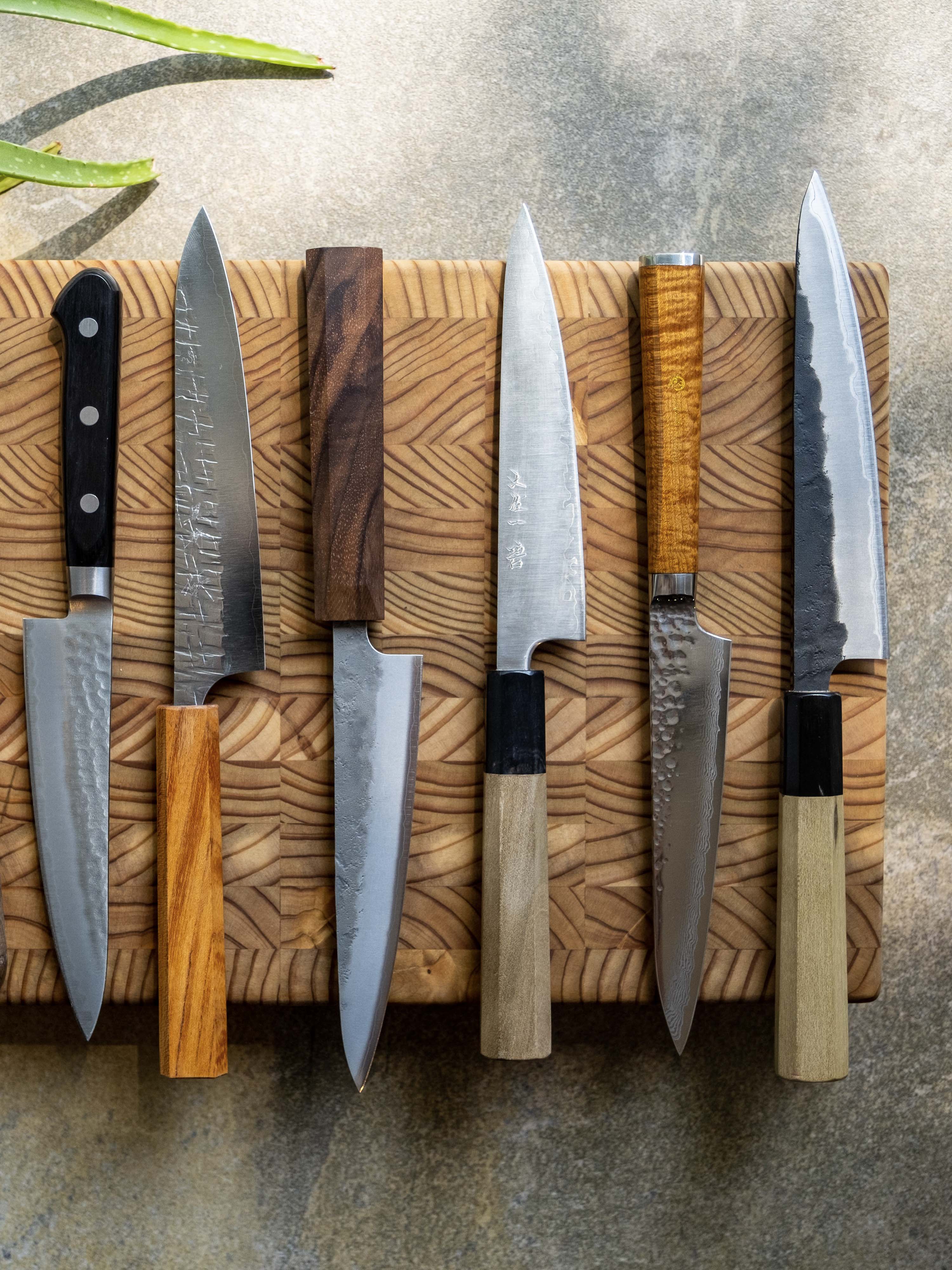
The petty knife is the Japanese equivalent of a utility knife. They typically range in size from 90 mm (3.5 inches) to 150 mm (6 inches) and have a slender, easy-to-control, short blade. They are a perfect accompaniment to a Gyuto, Santoku, or Bunka, as they facilitate smaller tasks. Shorter versions are great for in-hand use. Longer versions are great for fine chopping and managing small ingredients on a cutting board. They also handle butchery tasks with ease.
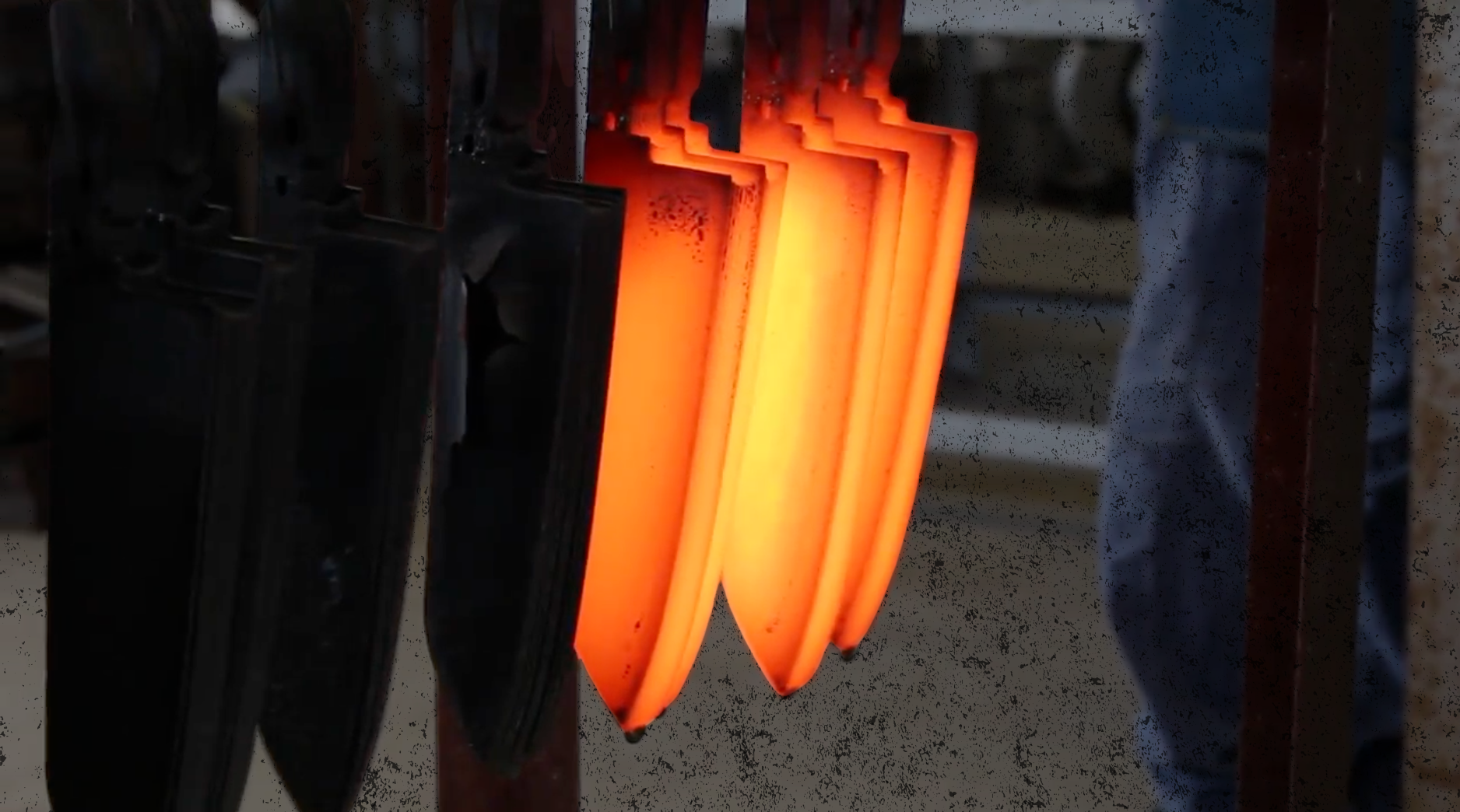
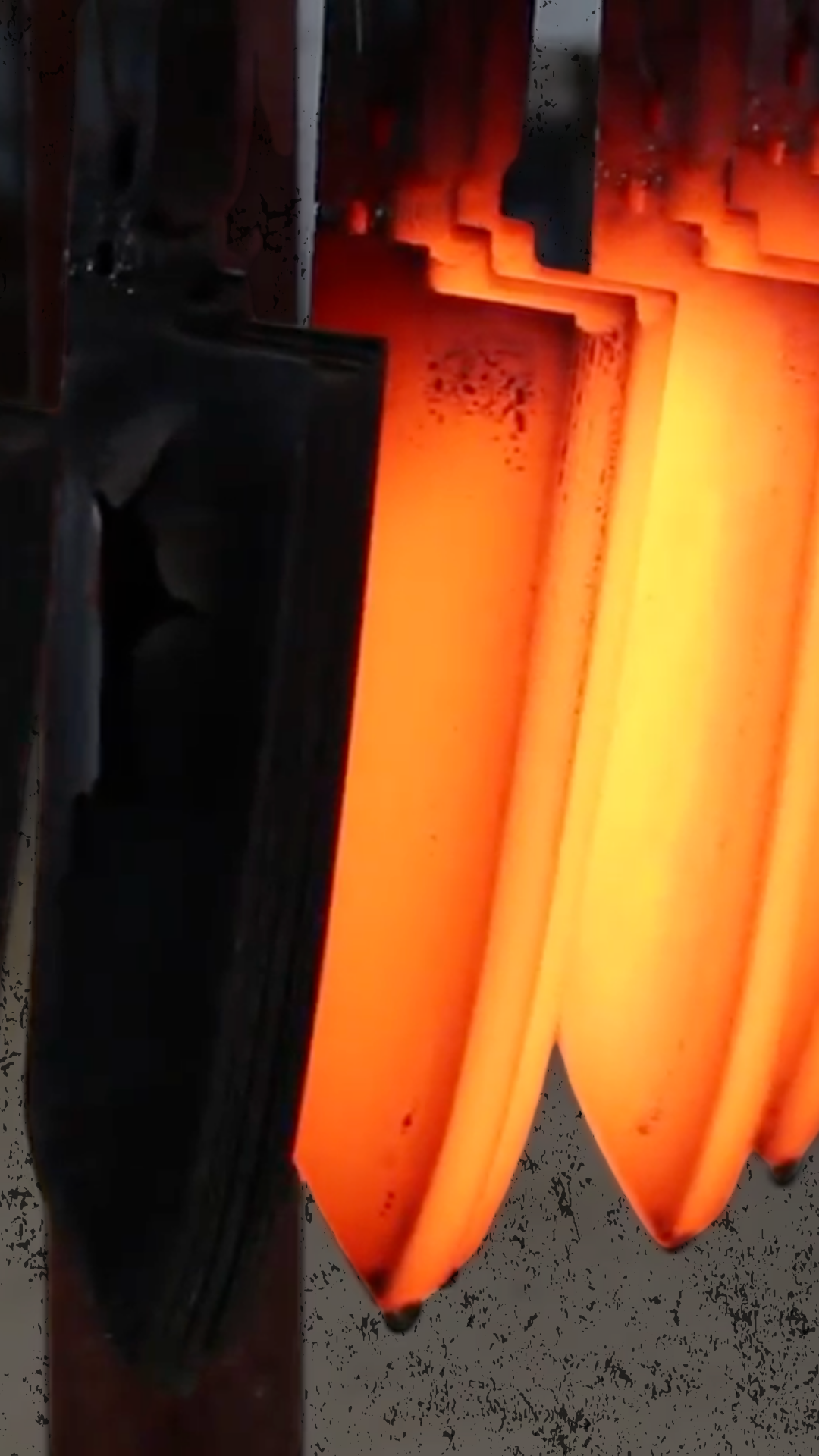
R2 and SG2 are technically different steel types, but are so similar we and many other retailers lump them into the same category. They are what’s known as a “quick powdered” stainless tool steel with incredible edge retention and corrosion resistance. Their one drawback is that their hardness can make them difficult to sharpen. It is not a steel we would recommend for those planning to thin and polish the bevels of their knives unless they are equipped with the proper tools (you will need a low grit stone in the #200 grit range).
Chemical Composition:
C 1.25-1.45% | Cr 14.0-16.0% | Mo 2.3-3.3% | V 1.8-2.2%
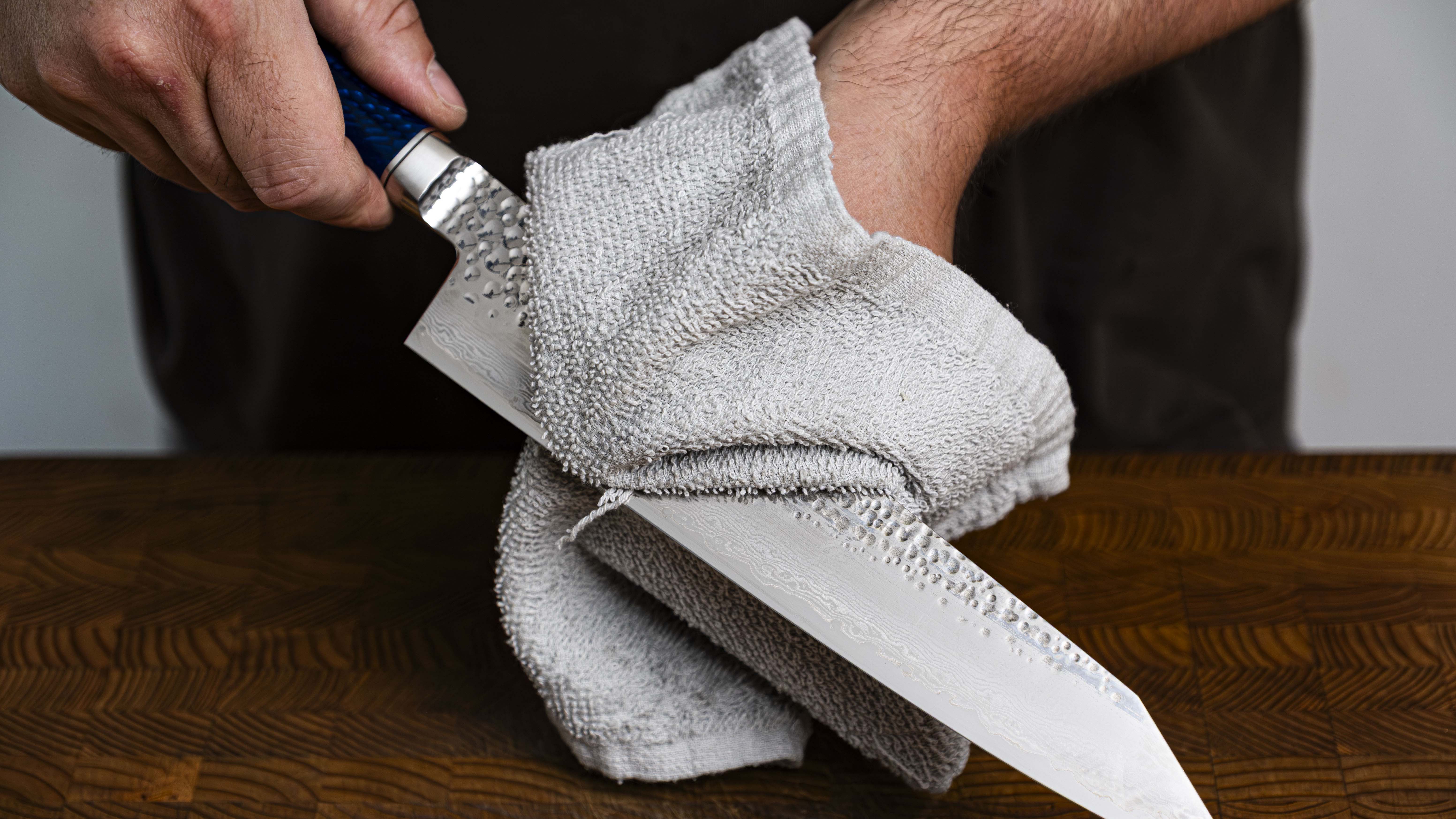
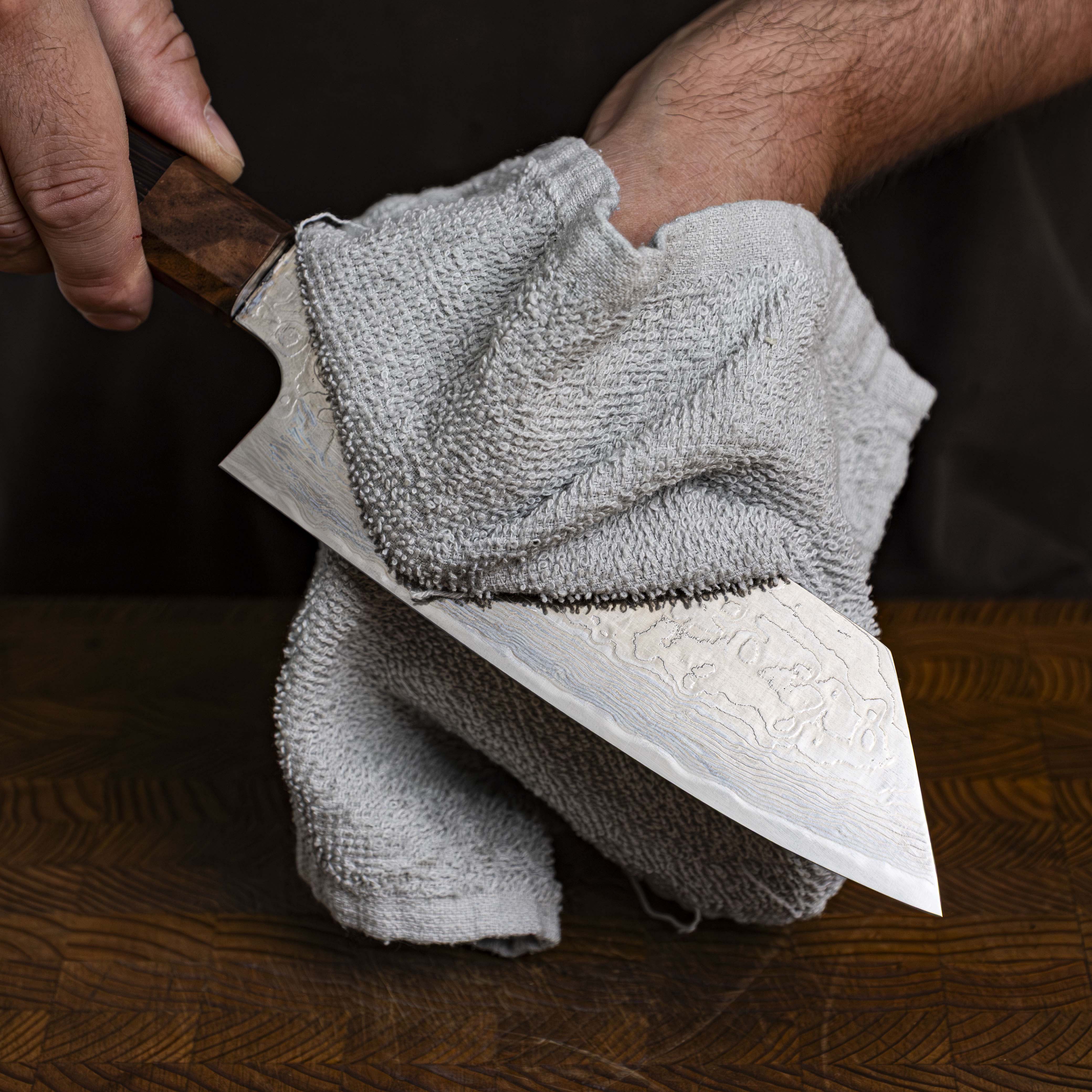
LOW MAINTENANCE
Stainless steel Japanese knives are made in a process called “Sanmai” or “Forge welding” where two softer layers of stainless steel are laminated around a harder core layer of stainless steel. All three of these layers are rust resistant and therefore are not susceptible to rust or discoloration. The softer outer layers of steel are used to make the knife more durable and flexible while the harder core layer is used to provide better edge retention to the blade.

Shigeki Tanaka started his blacksmith journey when he apprenticed for three years in the Takefu Knife Village in Echizen City, Fukui Prefecture, Japan, a region renowned for its cutlery making and forging techniques. He learned the intricacies of hand forging blades for food preparation there before moving back to Miki City, Hyogo Prefecture to continue his work at his family's shop where they primarily made sickles and other agricultural tools. Now, the hamono focuses on kitchen knives and has gained a reputation worldwide for producing some of the best knives available at a great price point.
